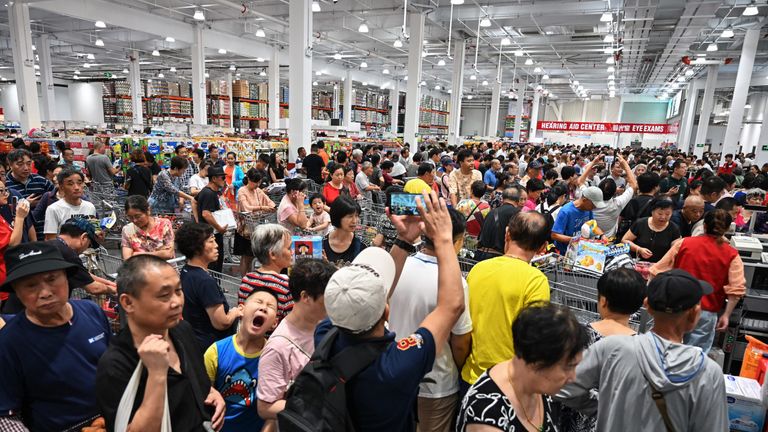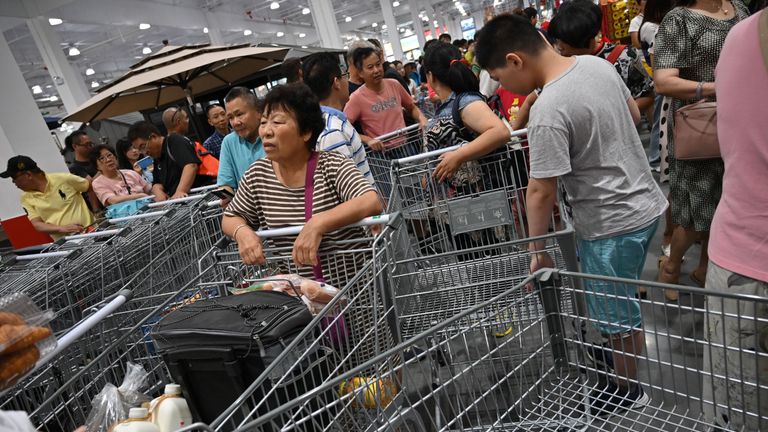Costco forced to close first store in China as shoppers jostle over chickens
US retail chain Costco was forced to close its first store in China on its opening day due to overcrowding after large crowds flocked there, sparking traffic jams in the area.
Videos posted on social media showed people clambering to get into the shop in Shanghai, jostling with others to get roasted chickens and meat and waiting in long check-out queues, as officials urged shoppers to behave “in a rational manner”.
The company has announced that it will now limit the number of shoppers at any given time to 2,000, and police will help to improve the flow of traffic nearby.
Costco said: “We’d like to apologise for the inconvenience caused to our members on our warehouse opening day in Shanghai.”
It pledged to send text messages to members when the store was nearing capacity or if there were long waiting times.
The internet pictures suggested that Beijing’s bitter trade war with Washington had done nothing to abate the appetite of consumers in China for the arrival of the American “warehouse club” chain.
Other big-name Western retailers such as Amazon, Tesco and Carrefour have been retreating from China having struggled to win market share in the face of competition from domestic rivals.
A newspaper run by the Shanghai authorities reported that the Costco store had shut early on its opening day on Tuesday, citing local government officials.
“Due to the extremely large crowds at the newly-opened supermarket, for the safety of the public we urge that residents consume in a rational manner and choose to go shopping at an off-peak time,” the officials were quoted as saying.
Signs outside the store warned shoppers that they might have to wait three hours to park.
A nearby school warned parents picking up children that they should expect to be “severely delayed due to the grand opening of Costco supermarket”.
Costco first entered the Chinese market in 2014 via an online store on Alibaba’s Tmall online marketplace.
It announced last month that it was opening its first physical store in China.
Source: Read Full Article




